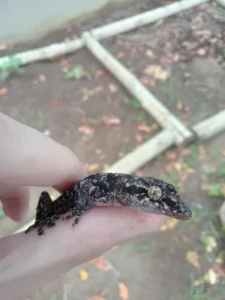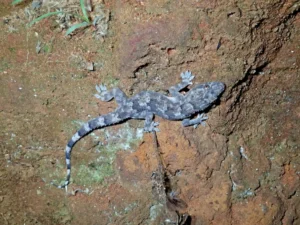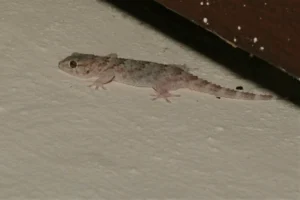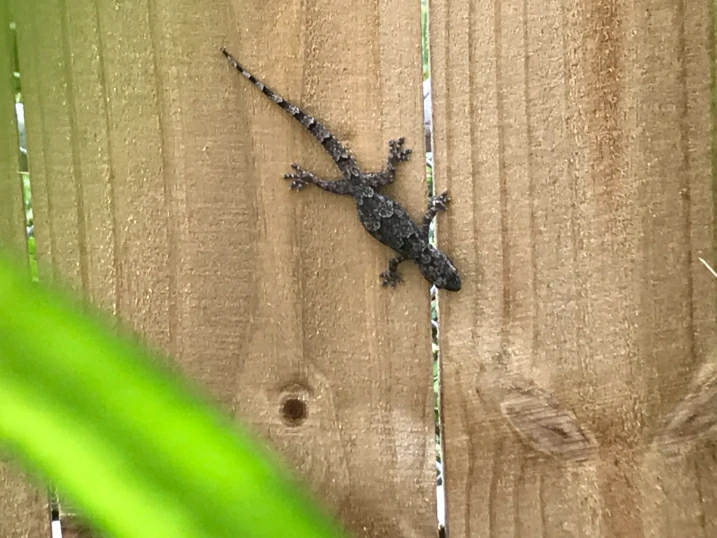Have you ever been outside and noticed tiny geckos darting across your yard at dusk? Some people think they’re cute, but for others, they’re just pests.
Maybe they’re eating plants, scaring your pets, or leaving droppings where your kids play. You might be asking yourself: how can I actually keep geckos out of my yard?
Keeping geckos out of your yard is about making the space less inviting. Remove food sources, limit hiding spots, use natural repellents, and adjust lighting. A few simple changes can make your yard much less attractive to these tiny lizards.
Geckos are small, fast, and clever. They’re not dangerous, but if your yard offers food, water, or shelter, they’ll stick around. The good news is, you don’t need harsh chemicals.
With some simple tweaks, you can make your yard a place geckos just don’t want to hang out.
Why Geckos Come Into Your Yard
Geckos are mostly looking for food and safety. They love insects, spiders, and other tiny bugs. If your yard has plenty of insects, geckos see it as a buffet.

They also like hiding places, tall grass, stacked firewood, or thick shrubs. Water is another draw. Geckos need moisture to survive, so ponds, dripping hoses, or even pet water bowls can attract them.
Essentially, your yard becomes a tiny hotel with food, water, and rooms to hide.
How Clearing Hiding Spots Can Reduce Gecko Visits
One of the easiest ways to keep geckos away is to remove places they can hide. Trim overgrown bushes, mow the lawn regularly, and keep areas near fences tidy.
Don’t let wood piles sit near the house, and keep outdoor furniture neat so geckos can’t sneak under it.
Even small changes help. A neighbor I know had geckos constantly under her porch. She cleared clutter, stacked firewood away from the house, and suddenly sightings dropped a lot.
Can Lighting Affect Geckos in Your Yard?
Yes, lights matter more than most people think. Geckos are active at night and feed on insects attracted to lights. Bright outdoor lights bring more bugs, which then attracts geckos.

If you want fewer geckos, switch to yellow or sodium lights instead of bright white ones. They attract fewer insects and make your yard less appealing as a feeding spot. Motion sensor lights can also scare geckos away, since they prefer quiet, low-traffic areas.
How Removing Food Sources Helps
Geckos mostly eat insects, so controlling bugs is key. Keep your trash covered, don’t leave pet food outside, and think about planting insect-repelling plants like basil or lemongrass.
Even small garden habits help. Watering in the morning instead of evening reduces mosquitos and other bugs at night, making geckos less likely to visit.
Are Natural Repellents Actually Effective?
Some natural repellents work well. Geckos dislike certain smells like garlic, onion, or pepper.
Sprinkling crushed garlic or onion powder around the yard makes areas less appealing.
Other people use peppermint or eucalyptus oil on cotton balls near doors or garden edges.
It won’t completely get rid of geckos, but it can encourage them to move on. The key is consistency, geckos will return if the scent fades.
Does Yard Design Matter for Gecko Prevention?
Absolutely. Geckos like cluttered, shaded areas. A yard with open spaces, trimmed shrubs, and fewer nooks makes it harder for them to stick around.

If you have a garden, keep mulch thin and avoid dense ground cover. Raised flower beds or open lawns give geckos fewer places to hide. Simple changes like this often make a big difference without using chemicals.
What About Pets? Can They Help?
Yes, pets like cats can naturally scare geckos away. Even a dog walking through the yard can discourage geckos from hanging around.
However, don’t rely only on pets. Geckos are fast and can hide easily, so pets help but won’t be a complete solution. Combine pets with habitat changes for the best results.
Should You Use Traps or Chemicals?
Traps are usually not needed. Geckos aren’t dangerous, so trapping them is more about convenience than safety. Chemicals should generally be avoided, especially if you have pets or kids, since many insecticides can harm wildlife.
Instead, focus on controlling their hiding spots, food, and using deterrents. These are safer, long-lasting, and effective ways to keep geckos away without hurting them.
How Weather and Seasons Affect Gecko Activity
Geckos are more visible in warm months when insects are abundant. During rainy seasons, they might come closer to homes to find dry spots. Knowing this can help you plan prevention.
For example, in summer, adjust outdoor lights, cover trash tightly, and manage garden moisture. Small seasonal tweaks make your yard much less appealing.
Can Geckos Return If You Make These Changes?
Yes, persistence matters. Even after removing hiding spots and food, geckos might wander in occasionally. The goal isn’t to make your yard gecko-proof forever (that’s almost impossible) but to make it less inviting so sightings are rare.
Consistency is key. Keep trimming, maintain repellents, and adjust lights, and geckos will usually move on without you doing more.
How to Make Your Yard a Place Geckos Avoid
Focus on four main things:
-
Remove hiding spots: trim plants, clear clutter, and keep ground cover minimal.
-
Control food: reduce insects with plant choices, watering habits, and pest prevention.
-
Adjust lights: yellow or motion-activated lights reduce insect and gecko activity.
-
Use natural repellents: garlic, onion, or essential oils around garden edges.
Combining these strategies makes a yard that geckos are less likely to visit. It’s safer for kids, pets, and the environment, and it keeps your outdoor spaces cleaner.
Conclusion
Geckos are interesting creatures, but most people don’t want them hanging around the yard. By understanding why they come (for food, water, and hiding spots) you can make simple changes to discourage them.
With consistent habitat control, natural repellents, careful lighting, and a tidy yard, you can enjoy your outdoor space without unwanted gecko visitors.
It’s about making your yard less attractive, not harming the geckos, and in most cases, small adjustments make a big difference.
Hi, my name is Ezra Mushala, i have been interested animals all my life. I am the main author and editor here at snakeinformer.com.

